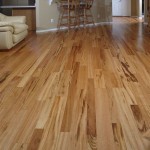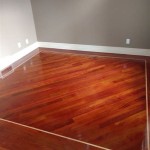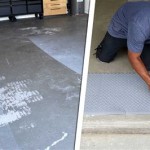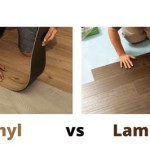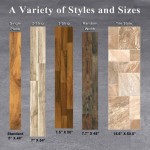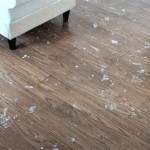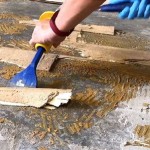Loose Lay Vinyl Plank Flooring on Concrete: Essential Considerations
Loose lay vinyl plank flooring has emerged as a popular choice for residential and commercial spaces due to its ease of installation, durability, and aesthetic versatility. When considering loose lay vinyl plank flooring on concrete, there are several essential aspects to keep in mind to ensure a successful installation.
### Concrete Surface PreparationThe concrete subfloor must be properly prepared before installing loose lay vinyl plank flooring. The surface should be clean, dry, and level. Any cracks, holes, or uneven areas should be filled and smoothed using a self-leveling compound. A moisture barrier may also be required if the concrete is damp or subject to moisture.
### Flooring SelectionChoose loose lay vinyl planks that are specifically designed for installation on concrete. These planks typically have a thicker backing layer that provides stability and prevents cracking.
### Installation MethodLoose lay vinyl plank flooring is installed by simply placing the planks on the prepared concrete subfloor, without the need for glue or nails. The planks are interlocked together using a tongue-and-groove system, creating a seamless and secure surface.
### Glue or No Glue?While loose lay vinyl planks are generally installed without glue, there are certain situations where glue may be necessary. If the planks are installed in high-traffic areas, on irregular surfaces, or subject to heavy use, using an adhesive can provide additional stability and prevent movement.
### Transitions and MoldingsTo create a polished look, transitions and moldings can be used to connect loose lay vinyl plank flooring to other flooring surfaces, such as carpet or tile. Transitions are available in a variety of materials, including aluminum, vinyl, and wood, and can be matched to the color and style of the flooring.
### Maintenance and CareLoose lay vinyl plank flooring is relatively low-maintenance. Regular sweeping and mopping with a mild cleaning solution is sufficient to keep the flooring clean. Avoid using harsh chemicals or abrasive cleaners, as they can damage the finish.
### Benefits of Loose Lay Vinyl Plank Flooring on ConcreteLoose lay vinyl plank flooring on concrete offers several advantages:
-Easy installation:
No glue or nails required, making it a DIY-friendly option. -Durability:
Vinyl is highly resistant to scratches, dents, and moisture. -Versatility:
Available in a wide range of styles and colors to complement any décor. -Sound absorption:
Vinyl's soft backing helps reduce noise and create a quieter environment. -Easy repairs:
Individual planks can be easily replaced if damaged without affecting the entire flooring system. ### ConclusionLoose lay vinyl plank flooring is an excellent choice for concrete subfloors due to its ease of installation, durability, and aesthetic versatility. By understanding the essential considerations outlined above, you can ensure a successful installation that will provide years of beauty and functionality.

What Is Loose Lay Vinyl Flooring A Plank Guide Reallyfloors America S Est Hardwood
Loose Lay Vinyl Plank Flooring Pros Cons Floorings

How To Lay The Perfect Loose Vinyl Plank Flooring Tile Wizards
Loose Lay Vinyl Plank Flooring Pros Cons Floorings

Laying Vinyl Planks The Right Way Expert Guide By Fantastic Handyman

Tips For Installing Vinyl Plank Over Concrete Floors Lemon Thistle

How To Prepare A Concrete Floor For Vinyl Flooring Parrys

Everything You Need To Know About 5mm Loose Lay Lvt

How To Install Vinyl Or Laminate Floors In A Basement Over Concrete Slab

Easy Ways To Install Vinyl Plank Flooring On Concrete
See Also
